
The cinema of France comprises the film industry and its film productions, whether made within the nation of France or by French film production companies abroad. It is the oldest and largest precursor of national cinemas in Europe, with primary influence also on the creation of national cinemas in Asia.
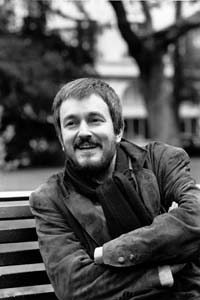
Jean-Jacques Beineix was a French film director best known for the films Diva and Betty Blue. His work is regarded as a prime example of the cinéma du look film movement in France.

Louis Laurent Marie Clerc was a French teacher called "The Apostle of the Deaf in America" and was regarded as the most renowned deaf person in American Deaf History. He was taught by Abbé Sicard and deaf educator Jean Massieu, at the Institution Nationale des Sourds-Muets in Paris. With Thomas Hopkins Gallaudet, he co-founded the first school for the deaf in North America, the Asylum for the Education and Instruction of the Deaf and Dumb, on April 15, 1817, in the old Bennet's City Hotel, Hartford, Connecticut. The school was subsequently renamed the American School for the Deaf and in 1821 moved to 139 Main Street, West Hartford. The school remains the oldest existing school for the deaf in North America.
The Yamagata International Documentary Film Festival is a documentary film festival held biennially in Yamagata, Japan.
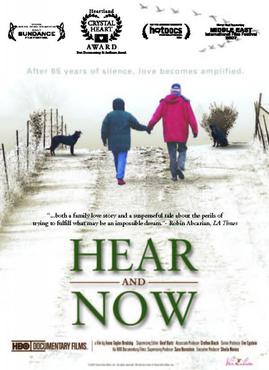
Hear and Now is a 2007 documentary film by Irene Taylor Brodsky, winning awards in 2007 at the Sundance Film Festival and the Heartland Film Festival; and garnering a Peabody Award in 2008.
The Cinema of Niger began in the 1940s with the ethnographical documentary of French director Jean Rouch, before growing to become one of the most active national film cultures in Francophone Africa in the 1960s-70s with the work of filmmakers such as Oumarou Ganda, Moustapha Alassane and Gatta Abdourahamne. The industry has slowed somewhat since the 1980s, though films continue to be made in the country, with notable directors of recent decades including Mahamane Bakabe, Inoussa Ousseini, Mariama Hima, Moustapha Diop and Rahmatou Keïta. Unlike neighbouring Nigeria, with its thriving Hausa and English-language film industries, most Nigerien films are made in French with Francophone countries as their major market, whilst action and light entertainment films from Nigeria or dubbed western films fill most Nigerien theatres.
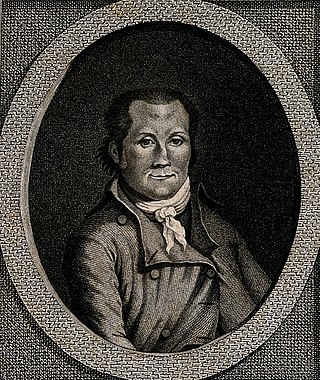
Jean Massieu was a pioneering deaf educator. One of six deaf siblings, he was denied schooling until age thirteen when he met Abbé Sicard, who enrolled him in the Institute national des jeunes sourds de Bordeaux-Gradignan, the Bordeaux School for Deaf Children. There he learned to read and write French, and later helped develop the first formalized French Sign Language. This French Sign Language was later adapted into American Sign Language. He taught at the famous school for the deaf in Paris where Laurent Clerc was one of his students. He began work after a scandal in Paris in Rodez and dedicated his life to educating deaf children. Later he founded a deaf school in Lille, France.

Roch-Ambroise Auguste Bébian was one of the first hearing educators in France to achieve native-level fluency in French Sign Language. In 1825, he published an important book, Mimographie, which utilized a method of writing signs.
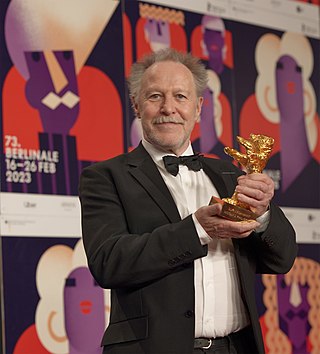
Nicolas Philibert is a French film director and actor.
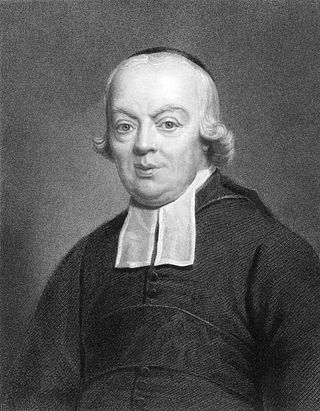
Charles-Michel de l'Épée was an 18th-century French philanthropic educator who has become known as the "Father of the Deaf". He founded Institut National de Jeunes Sourds de Paris, the first public school for the deaf, in 1760.

Nicolas Edet is a French professional road cyclist, who last rode for UCI WorldTeam Arkéa–Samsic. He has entered the Tour de France on eight occasions and completed the race seven times. He won the mountains classification in the 2013 Vuelta a España, and wore the red jersey of overall race leader, for one day, during the 2019 Vuelta a España.
Mireille Dansereau is a Canadian director and screenwriter who is known for "emulating the style and approach of her aesthetic role model, John Cassavetes". She received several accolades throughout her film career which spans over 50 years.
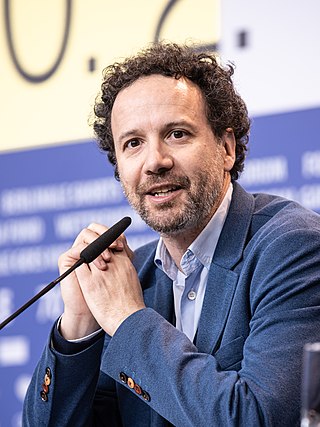
Carlo Chatrian is an journalist, cinema critic and artistic director. He directed the Festival del film Locarno from 2012 to 2018 and the Berlin International Film Festival from 2020 to 2024.

La Famille Bélier is a 2014 French-Belgian coming-of-age comedy-drama film directed by Éric Lartigau. The film received six nominations at the 40th César Awards, winning Most Promising Actress for Louane Emera. It won a Magritte Award in the category of Best Foreign Film.

Pierre Pélissier was a pioneer for deaf education in France in the mid-19th century. Born in Gourdon, Lot, he was a teacher of the deaf and also wrote a dictionary for an early form of French Sign Language in 1856. He studied first at Rodez and Toulouse, under Abbot Chazottes. He then became a teacher at the School of the Deaf in Toulouse. He was the deputy secretary of the Central Society for Deaf Mutes in Paris in 1842. In 1843, at age 29, he went to Paris to teach at the Imperial School for Deaf Mutes, where he taught until his death.
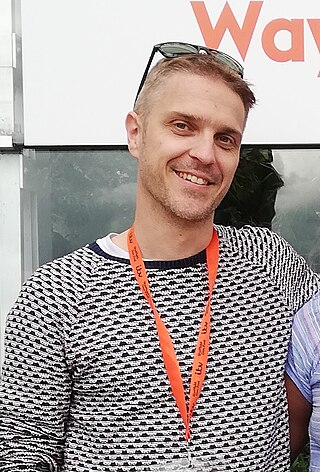
Olivier Magis is a Belgian director.

Ridha Behi is a Tunisian director and producer. He is known for The Magic Box and Always Brando (2011).
Arnaud Balard is a French deafblind artist. In 2009, Balard wrote a manifesto outlining his philosophy of Surdism, an artistic, philosophical, and cultural movement celebrating deaf culture and deaf arts. He is also known for designing the Sign Union flag, an image intended to represent global unity for deaf and deafblind people.

On the Adamant is a 2023 French-language documentary film directed by Nicolas Philibert. The work portrays the floating structure L'Adamant Day Center, located on the Seine river in Paris. The structure is a special daycare center for the treatment of adults with mental disorders.
Francine Sandberg is a French film editor. She is known for working as an editor for several films directed by Chantal Akerman and Cédric Klapisch, including News from Home (1977), L'Auberge Espagnole (2002), Russian Dolls (2005), and Paris (2008), and has been nominated three times for the César Award for Best Editing.















